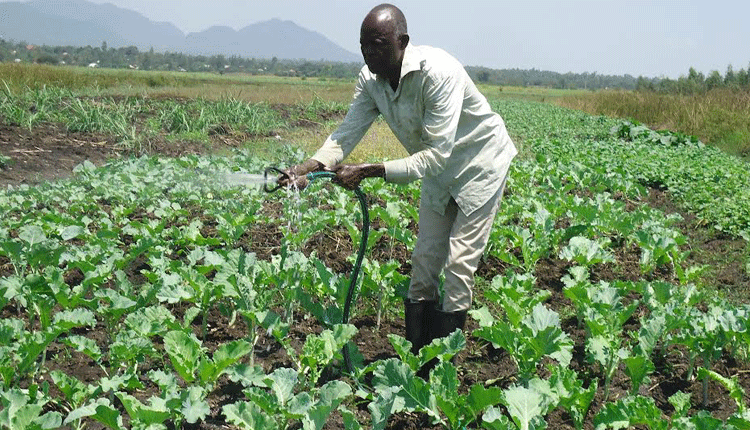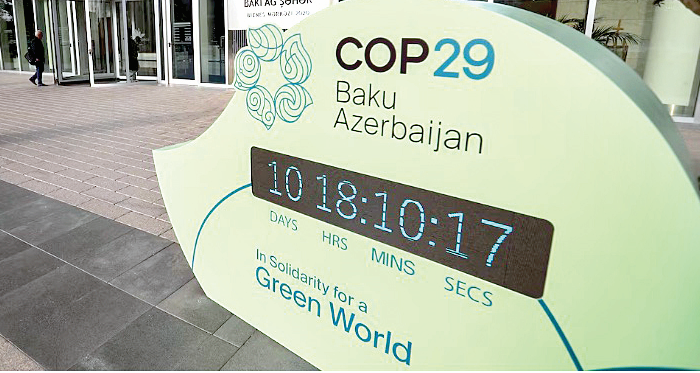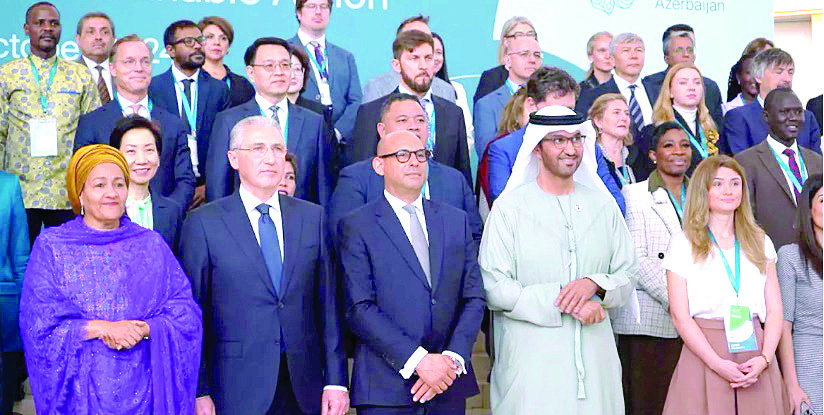Ailing food systems must rely on climate-smart agriculture

The links between climate change, agriculture and food security were illuminated during the recently concluded conferences, the United Nations Climate Conference in Baku, Azerbaijan and the Convention on Biodiversity in Cali, Colombia.
Such was the seriousness that leaders dedicated a Food, Water and Agriculture Day at COP29 to help bring the process of solving the climate crisis closer home.
Food and Agriculture Organisation (FAO) Director-General QU Dongyu opened the Food and Agriculture Pavilion in Baku, hosted in partnership with the Consortium of Agricultural Research Centres (CGIAR), which aims to drive decisive action in addressing the impacts of the climate crisis on food and agriculture.
“We need to support farmers in adapting to climate change impacts and mitigating emissions from food production, transportation and consumption,” QU told the World Climate Summit.
The pavilion in Baku served as a platform to demonstrate solutions derived from transforming agri-food systems into addressing climate change, biodiversity loss, land degradation, food insecurity and poverty.
Within the global climate discussion, there is a great need for evidence-based research and communications that can bring clarity to the complex trade-offs that exist between food security, development and climate action.
Climate-smart agriculture (CSA) has become the central focus in addressing interlinked challenges of food security and climate change. CSA as it is today globally understood, is a set of farming methods that scientifically aim to address the challenges of climate change and food security by integrating landscapes, using adaptation methods and the restoration of ecosystems.
To adapt and mitigate the effects of climate change on food security, countries can improve agriculture by using more efficient irrigation and watershed management, and develop crop varieties that can tolerate heat and drought.
They can also diversify food systems by implementing integrated production systems, and use a variety of genetic resources. Countries can also reduce food loss and waste by adopting healthy and sustainable diets, and educating people on food preservation techniques.
The climate-food systems nexus shows that science has many benefits for agriculture that can help influence policy through research-based evidence to produce higher crop yields and reduce environmental impact.
Locally rooted
Other benefits agriculture gains from science include more crop resistance to pests and disease and tolerance of extreme weather conditions, improved soil fertility, reduced water pollution and sustainable food systems.
New technologies and scientific knowledge, agricultural experts say, can help create a sustainable global food system. In other words, the ailing global food systems, wracked by various factors, are now depending on climate-smart agriculture as a life-support system.
For example, food systems are using early warning systems (climate data and forecasts) to analyse the impacts of climate change on food production and to support smallholder farmers by providing access to credit and other services. Increasing public awareness educates people about the challenges caused by climate change.
Increase in soil organic matter boosts water retention and resilience to drought. A key lesson learned from COP29 is that countries must invest in research and development to develop climate-resistant crops.
They must also increase digital literacy focusing on women, who constitute the majority of the agricultural labour force but are less likely to use digital agriculture solutions.
Todd A. Crane, a principal scientist at the International Livestock Research Institute (ILRI) in Kenya believes that adaptation is inherently a local process. Efforts to address climate change need to be locally designed, implemented and managed, which means genuinely engaging with traditional knowledge systems and ensuring communities have the financial tand echnological resources they need.
At COP29’s Action on Food Hub Pavilion, during events focused on youth-led initiatives, panellists highlighted young innovators championing regenerative soil practices, driving technology, and organising their peers into scalable movements and campaigns.
Closing the funding gap for smallholder farmers and vulnerable rural and family growers is a serious and urgent matter – the climate crisis cannot be solved without them.
“Farmers are, by their very nature, local – and so our solutions need to be locally rooted, too,” says world-renowned researcher on food systems and agriculture Danielle Nierenberg.











